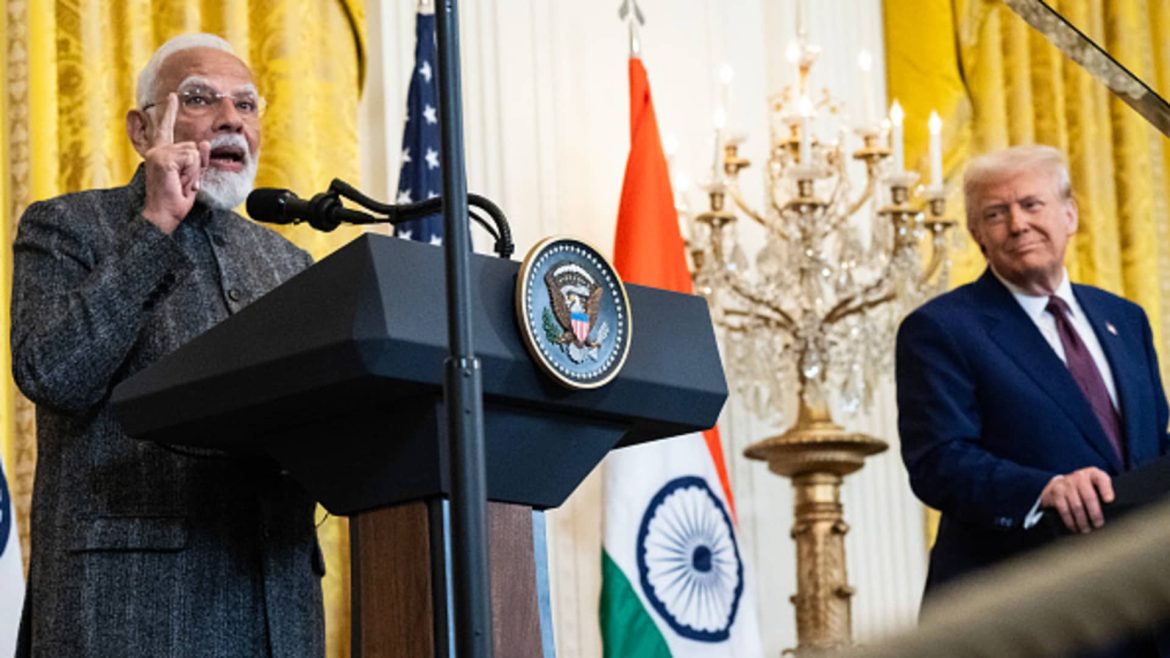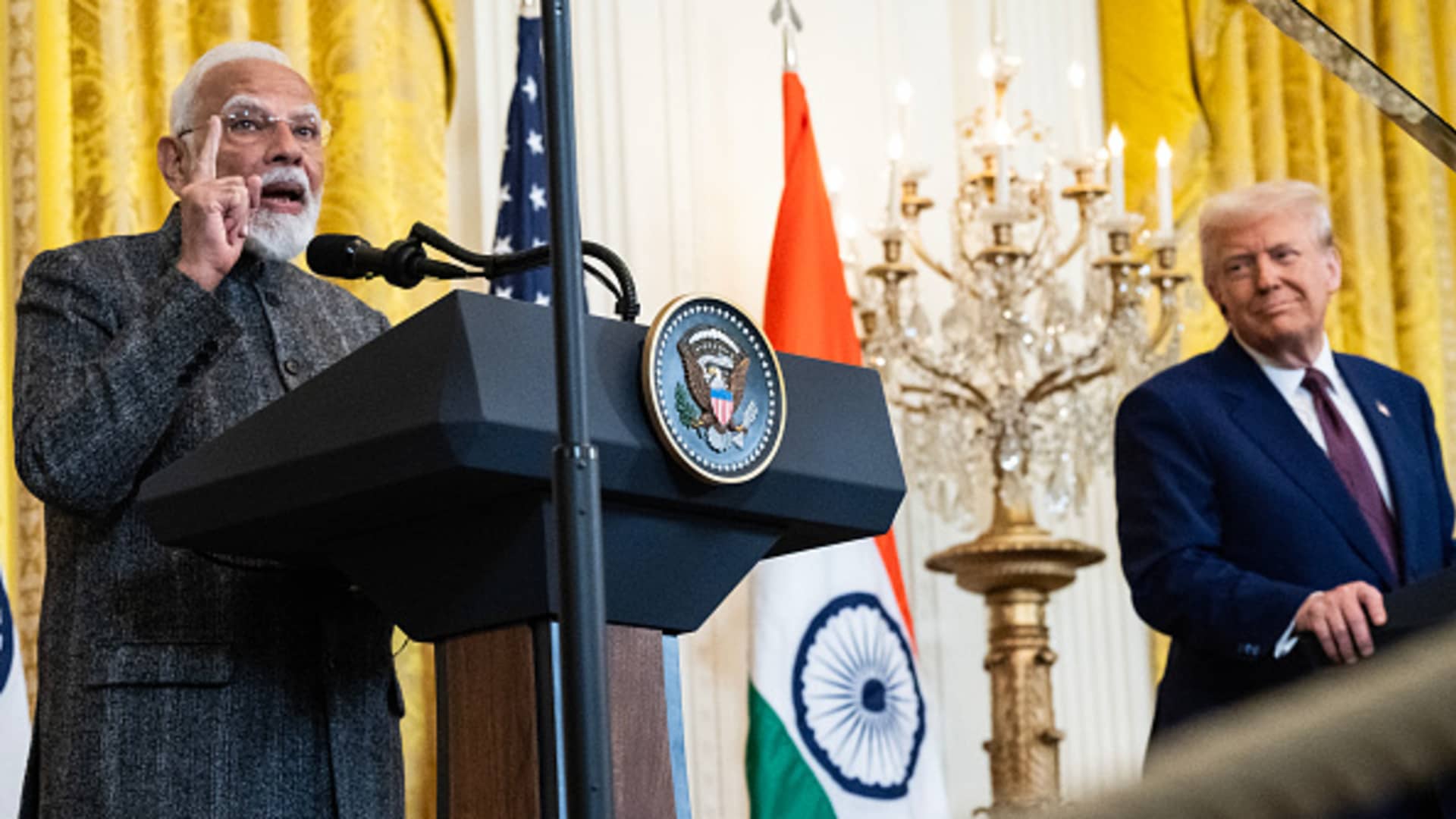A Diplomatic Disconnect: Examining the Modi-Trump Disagreement Over the India-Pakistan Ceasefire
The recent exchange between Indian Prime Minister Narendra Modi and U.S. President Donald Trump regarding the February 2025 ceasefire between India and Pakistan has sparked a significant diplomatic episode. While President Trump repeatedly asserted a mediating role for the United States, specifically citing the use of trade as leverage, Prime Minister Modi unequivocally refuted these claims, stating that the ceasefire was a direct result of bilateral engagement between India and Pakistan, with no U.S. involvement. This divergence in narratives, unfolding publicly after a phone call between the two leaders, highlights a complex interplay of diplomatic strategy, national pride, and differing perceptions of international influence.
Trump’s Assertions and the Narrative of U.S. Mediation
President Trump’s claims of having “stopped the war” between India and Pakistan began surfacing shortly after the de-escalation of tensions. He consistently emphasized a U.S. role in brokering the ceasefire, often linking it to potential trade negotiations. The narrative presented by the Trump administration suggested that the threat of trade repercussions motivated both India and Pakistan to agree to a cessation of hostilities. This portrayal served to bolster the image of the U.S. as a powerful mediator capable of resolving complex geopolitical conflicts. Trump’s insistence on his role continued even after direct denial from the Indian side, demonstrating a clear commitment to maintaining this particular account of events. His statements, made both publicly and during the G7 summit, were characterized by a confident tone, framing the situation as a personal diplomatic triumph.
Modi’s Firm Rejection and India’s Position
In stark contrast to Trump’s assertions, Prime Minister Modi, during a 35-minute phone call with the U.S. President, firmly denied any U.S. mediation in the India-Pakistan ceasefire. He explicitly stated that there had been no discussion of U.S. involvement at any level during the period leading up to the ceasefire. Furthermore, Modi clarified that no discussions regarding a potential India-U.S. trade deal were linked to the de-escalation of tensions. This direct rebuttal was a significant diplomatic move, signaling India’s unwillingness to accept external credit for a resolution achieved through its own diplomatic efforts. India’s position underscores a long-held preference for bilateral dialogue with Pakistan, viewing third-party mediation with skepticism. The Foreign Secretary, Vikram Misri, further reinforced this stance, emphasizing India’s “measured and responsible” approach.
The Context of Bilateral Engagement and Historical Precedents
The core of the disagreement lies in the differing interpretations of the events leading to the ceasefire. India maintains that the cessation of hostilities was a result of direct military-level talks between the two nations. This aligns with India’s historical preference for resolving disputes with Pakistan through bilateral channels, a strategy pursued for decades despite numerous challenges. The return of a captured Indian pilot by Pakistan was a key moment in this process, signaling a willingness to de-escalate. While the U.S. may have engaged in quiet diplomacy, encouraging both sides to exercise restraint, India views this as distinct from active mediation. The historical context is crucial; India has consistently resisted third-party mediation, viewing it as an infringement on its sovereign right to address its concerns with Pakistan directly.
Domestic Political Ramifications and International Implications
The public disagreement between Modi and Trump has triggered a political row within India. Opposition parties have seized upon the issue, demanding clarification on the U.S. role and questioning the government’s handling of the situation. The incident has become a focal point for political debate, with critics accusing the government of potentially compromising India’s independent foreign policy stance. Internationally, the episode raises questions about the reliability of information emanating from the Trump administration and the potential for misrepresentation of diplomatic events. It also highlights the complexities of navigating relationships with a U.S. administration known for its unconventional diplomatic style. The incident could potentially strain India-U.S. relations, although both sides appear keen to avoid a significant deterioration.
The Role of Communication and Differing Perceptions
A significant factor contributing to the disconnect appears to be a difference in communication styles and perceptions of diplomatic engagement. President Trump’s tendency to publicly claim credit for diplomatic successes, even when the extent of U.S. involvement is limited, contrasts sharply with India’s more cautious and understated approach. It is possible that the U.S. engaged in behind-the-scenes efforts to encourage de-escalation, which Trump interpreted as a more substantial mediating role. However, India’s perspective is that these efforts did not constitute formal mediation and should not be presented as such. The incident underscores the importance of clear and consistent communication in international diplomacy, particularly when dealing with sensitive geopolitical issues.
A Delicate Balance: Navigating the Aftermath
The Modi-Trump exchange represents a delicate moment in India-U.S. relations. While both leaders have expressed a desire to maintain a strong partnership, the public disagreement over the India-Pakistan ceasefire has created a degree of friction. India has effectively asserted its independent foreign policy stance, refusing to concede to external narratives that it believes misrepresent the facts. The U.S., while continuing to emphasize its role as a global peacemaker, will likely need to recalibrate its messaging to avoid further straining relations with India. Moving forward, a focus on strengthening bilateral cooperation in areas of mutual interest, such as counterterrorism and economic development, will be crucial to maintaining a stable and productive partnership. The incident serves as a reminder that even close allies can have differing perspectives on international events, and that effective diplomacy requires a commitment to transparency, mutual respect, and a nuanced understanding of each other’s priorities.





